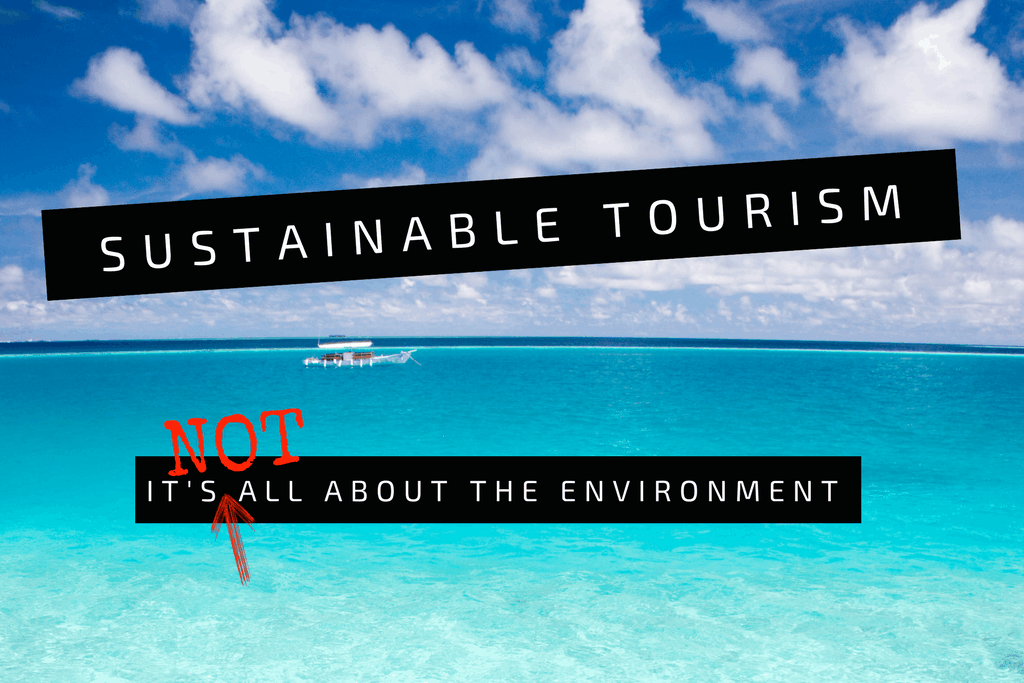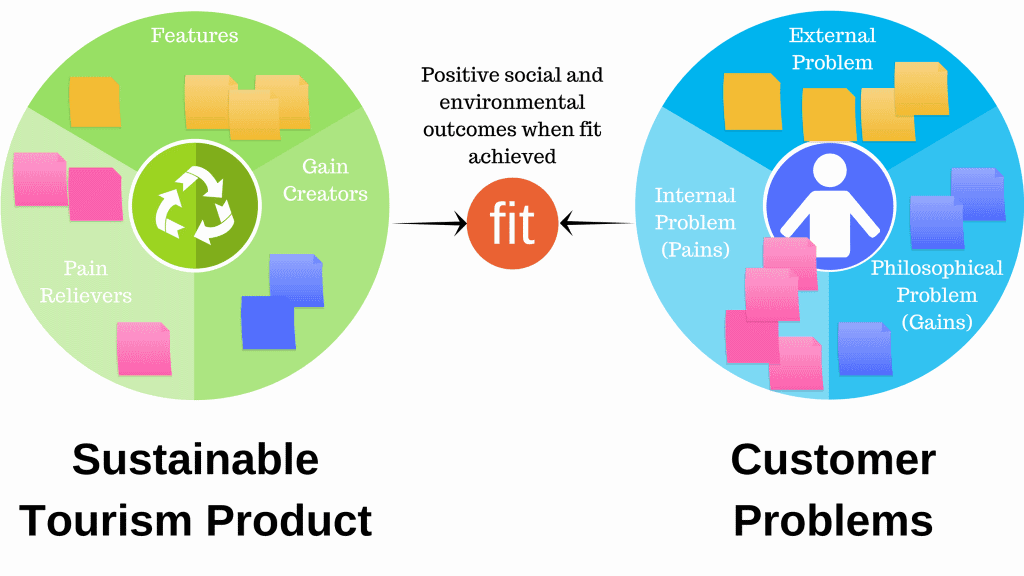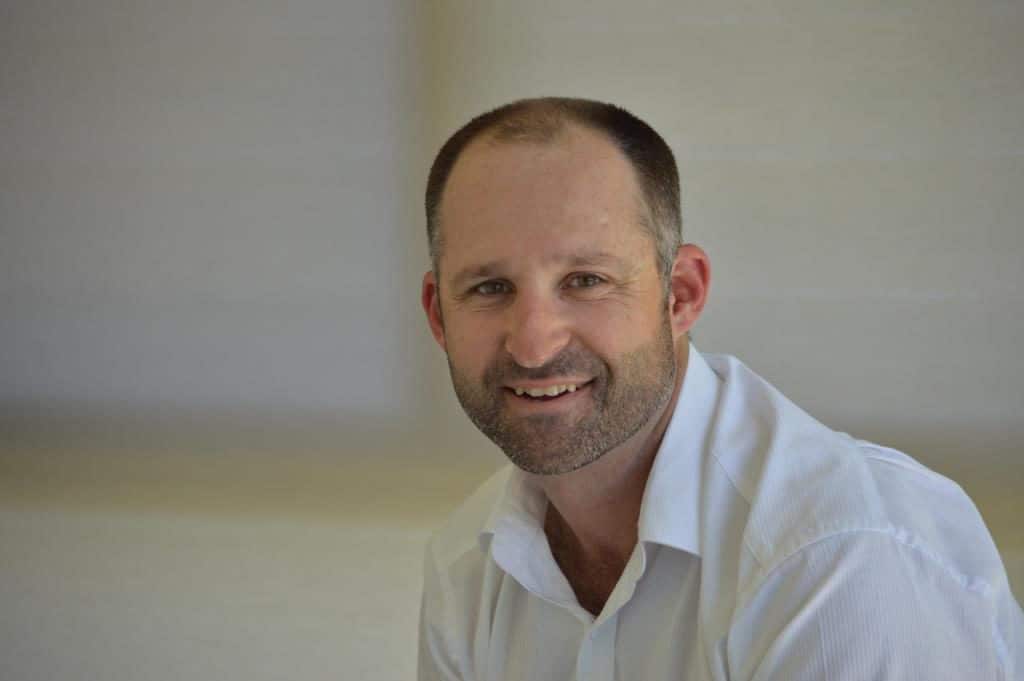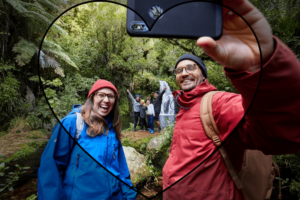Successful sustainable tourism is NOT all about the environment, society, economy

Successful sustainable tourism is not only about environmental, social, and economic imperatives; it’s about marketing too! In other words, successful sustainability strategies solve problems for customers. So argues James McGregor, Founder & CEO of Blue Tribe, in this “GT” Insight.
I have a confession to make. Sometimes when I travel for business or pleasure I leave the lights on in my room, leave the spare key in the energy saving switch so the air conditioning keeps running and the room will be cool when I get back from a run, take showers that are longer than three minutes, and sometimes I even ask for fresh towels even though the little sign in the bathroom tells me I can save water by just hanging them up.
Every time I do this I feel a pang of guilt because I also run a business that helps companies and government design and implement sustainable business models that deliver positive social and environmental impacts for the community and planet.
So, the question we need to ask of our sustainability initiatives is that if a committed sustainability enthusiast like me doesn’t participate in our initiatives then what do the rest of our customers think about our sustainability efforts?
The answer to this question is that most of your customers don’t think about it at all.
Sustainable tourism – what your customers think
Ask any of your customers if they seek out sustainable products and services the chances are that they will say yes. A 2015 Cone Communications/Ebiquity Global CSR Study found that 84% seek out responsible products whenever possible with 81% of consumers saying they will make personal sacrifices to address social, environmental issues. A 2015 study by Booking.com also found that 52% of travellers are likely to choose a destination based on its environmental impact.
But dig a little deeper and you will also likely find that this sentiment doesn’t translate into action. A 2015 Neilsen survey found that despite growing consumer demands for eco-friendly products, only 10% of consumers purchased them.
So what is actually going on here?
This is what has been described as the values-action gap. In other words, what people tell you is not what they do. Your customers don’t lose sleep worrying about climate change or how they can save energy or water despite what they might tell you. These issues are immaterial to the reason they decided to stay at your hotel or buy one of your tours.
Your customers don’t think about your sustainability initiatives because they don’t solve a problem or a need that is important to them. When they choose your business for their holiday they are looking to relax and unwind, escape their mundane jobs and do something exciting, have experiences they can brag about with their friends, or create amazing memories.
What you can do about it
One of the most effective ways to deliver a successful sustainability initiative is to design your environmental or social initiative to solve your customer’s problems. There are three types of problems customers are trying to solve; external problems (the job they are trying to get done), internal problems (the pains or frustrations they feel), and philosophical problems (the things they believe in).
External problems (jobs) represent what customers are trying to get done in their work and in their lives, as expressed in their own words e.g. “have a holiday”, “visit my family”, “attend a conference”.
Internal problems (pains) describe bad outcomes, risks, and obstacles and how these problems make them feel e.g. “I just want to relax and unwind”, “I have a busy schedule on this business trip so I need quiet place to chill out and be left alone to recover from my flight”, “I have worked hard to be able to retire and I deserve this”.
Philosophical problems (gains) describe higher outcomes a customer might want to achieve and often relate to values e.g. “make a better future for my kids”, “be on the winning team”.
You will deliver a successful sustainability program when your sustainability initiative maps to meet your customer problems i.e. when your sustainability initiative solves one or more of the internal, external, and philosophical problems that are important to your customer.

For example, my family had the pleasure of having a holiday at the Jean Michel Cousteau resort in Savusavu, Fiji. For this trip, my external problem was that I wanted to take my family on holidays but I also wanted my young children to visit a location where they could see some of the natural beauty of our world. My internal problem was that I wanted to unwind from a busy work schedule, spend quality time with my wife, and wanted to be sure the children were safe. My philosophical problem was that I believed we should choose a destination that had a light touch on the environment.
The team from Jean Michel Cousteau were able to solve my external problem by providing a holiday experience in one of the most stunning parts of the world. They solved my internal problem by offering an amazing kids club so my wife and I could have dinner as a couple whilst the kids were hunting for crabs and learning about how to care for the environment with the resident marine biologist “Johnny” and we felt comfortable that they were safe. Finally, the resort’s values solved my philosophical problem.
We were able to help protect the local marine park, help rehabilitate the giant clam population, contribute to local social impact projects and educate our children about how to care for the planet without once having to think about the resort’s sustainability projects because it was fully integrated into our experience and at the same time solved our external, internal, and philosophical needs and desires.
When we design our sustainability plans we always set out with good intentions. We want to make the world a better place and try to do this by reducing energy consumption or trying to save water. But if our sustainability strategies fail then we do not actually deliver the positive environmental or social outcomes we believe in.
Delivering a successful sustainable tourism initiative is not about doing good things for the world, it is about solving your customers needs in an environmentally or socially responsible way. Doing good things for the world just happens to be a consequence of doing this successfully.
 Download
Download
To help map sustainability initiatives against customer problems/needs Blue Tribe has put together a free guide on “How to Design a Value Proposition for your Sustainability Strategy”.
Video
The following YouTube video is what inspired “GT” Blog to invite James to contribute:
About the author

When his dreams of becoming an ice trucker were crushed by climate change, James McGregor decided to become Chief Sustainability Innovator, Founder and CEO of the Blue Tribe Company and work with leading companies and governments to design and implement successful sustainability strategies using innovative techniques developed in Silicon Valley.
When he is not busy helping his clients to save the planet or providing the keynote speech at a sustainability conference, James can usually be found outdoors participating in an adventure race or triathlon, supporting the local surf lifesaving club, and spending time with his wife and two young children.
The Blue Tribe Company draws upon a global network of 10,000+ professionals to provide management consulting expertise to clients all over the world specialising in sustainable business, business innovation and strategy. Their services include sustainable business strategy, innovation, business finance, business model innovation, project management, digital marketing, intellectual property, technology commercialisation, and governance.





